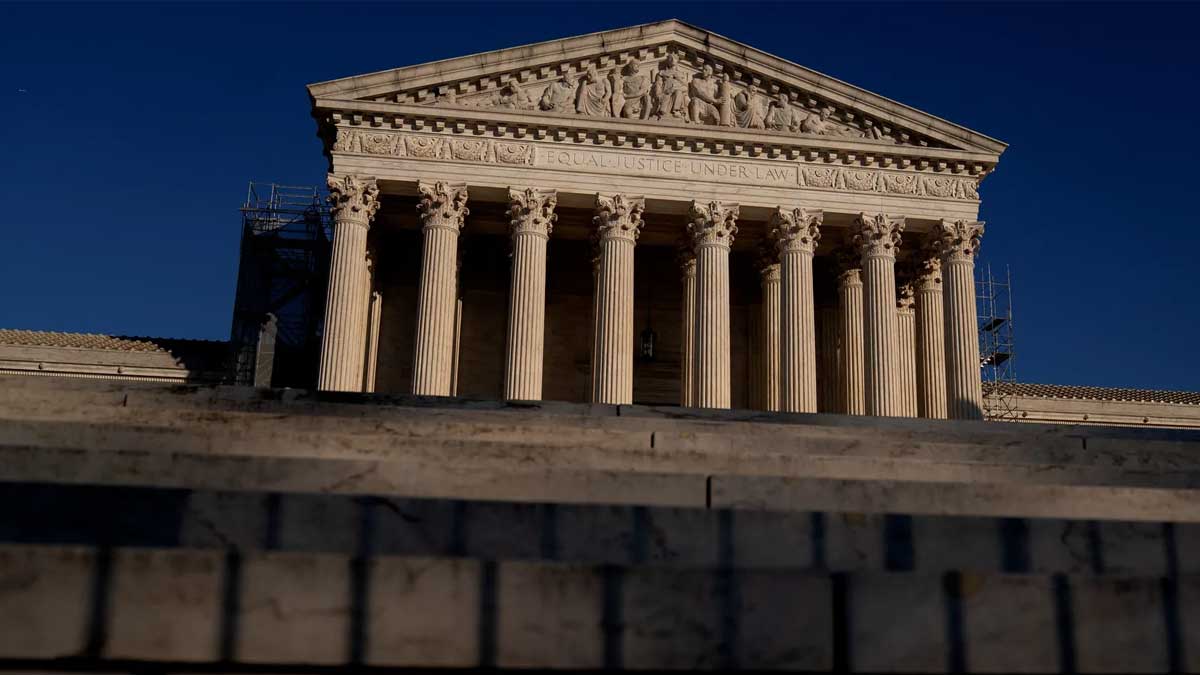- Home
- Billionaires
- Investing Newsletters
- 193CC 1000
- Article Layout 2
- Article Layout 3
- Article Layout 4
- Article Layout 5
- Article Layout 6
- Article Layout 7
- Article Layout 8
- Article Layout 9
- Article Layout 10
- Article Layout 11
- Article Layout 12
- Article Layout 13
- Article Layout 14
- Article Sidebar
- Post Format
- pages
- Archive Layouts
- Post Gallery
- Post Video Background
- Post Review
- Sponsored Post
- Leadership
- Business
- Money
- Small Business
- Innovation
- Shop
Recent Posts
Alito’s Secret Remarks Spark Supreme Court Ethics Concerns

Supreme Court Justice Samuel Alito faced backlash on Monday after a secret recording revealed him agreeing that the U.S. should return “to a place of godliness.” This follows criticism for previously flying flags linked to Christian nationalism and the “Stop the Steal” movement. The incident adds to ongoing ethical controversies surrounding the Supreme Court, leading to increasing calls from lawmakers and legal experts for a binding code of ethics.
During an event with the Supreme Court Historical Society, documentary filmmaker Lauren Windsor, posing as a conservative, asked Alito about political compromise. Alito expressed that while peaceful coexistence is possible, it is challenging due to fundamental differences. He also agreed with Windsor’s desire to return the U.S. “to a place of godliness.”
The Times reported that Alito flew an inverted flag after the 2020 election, alarming neighbors and prompting reports to the Supreme Court. Additionally, he flew a “Return to Heaven” flag in 2023, a symbol adopted by Christian nationalists and Trump supporters.
Justice Clarence Thomas has also come under scrutiny for accepting undisclosed gifts and luxury travel from GOP donor Harlan Crow, who also bought real estate from Thomas. Thomas’ wife, Ginni Thomas, has faced criticism for her political activism, including efforts to overturn the 2020 election, raising questions about potential conflicts of interest.
Justice Sonia Sotomayor faced criticism for her staff’s efforts to promote her books during public events. Justice Neil Gorsuch was scrutinized for a real estate transaction with a law firm head, and Chief Justice John Roberts faced questions about his wife’s earnings from legal recruitment.
In November, the Supreme Court announced an ethics code aimed at preserving judicial integrity, though critics argue it lacks enforcement mechanisms. Senate Judiciary Committee Chair Sen. Dick Durbin stated that lawmakers would review the code and might push for stricter regulations.
Former federal prosecutor Joyce Vance warned that Alito’s comments could undermine public trust in the Supreme Court. In contrast, Chief Justice Roberts declined to align with similar statements, emphasizing that moral guidance should come from elected officials, not the judiciary.
The ongoing ethical debates highlight the need for clear and enforceable standards to maintain the Supreme Court’s integrity and public trust.
Recent Posts
Categories
- 193cc Digital Assets2
- 5G1
- Aerospace & Defense46
- AI37
- Arts3
- Banking & Insurance11
- Big Data3
- Billionaires449
- Boats & Planes1
- Business328
- Careers13
- Cars & Bikes76
- CEO Network1
- CFO Network17
- CHRO Network1
- CIO Network1
- Cloud10
- CMO Network18
- Commercial Real Estate7
- Consultant1
- Consumer Tech180
- CxO1
- Cybersecurity68
- Dining1
- Diversity, Equity & Inclusion4
- Education7
- Energy8
- Enterprise Tech29
- Events11
- Fintech1
- Food & Drink2
- Franchises1
- Freelance1
- Future Of Work2
- Games141
- GIG1
- Healthcare78
- Hollywood & Entertainment186
- Houses1
- Innovation42
- Investing2
- Investing Newsletters4
- Leadership65
- Lifestyle11
- Manufacturing1
- Markets20
- Media193
- Mobile phone1
- Money13
- Personal Finance2
- Policy567
- Real Estate1
- Research6
- Retail1
- Retirement1
- Small Business1
- SportsMoney33
- Style & Beauty1
- Success Income1
- Taxes2
- Travel10
- Uncategorized8
- Vices1
- Watches & Jewelry2
- world's billionaires418
Related Articles
Trump Moves $4B Stake in Truth Social Parent, Stock Drops 6%
Donald Trump recently transferred his 57% stake in Trump Media & Technology...
By 193cc Agency CouncilDecember 20, 2024House Rejects Trump-Backed Funding Bill, Shutdown Looms
The U.S. House of Representatives rejected a new government funding bill on...
By 193cc Agency CouncilDecember 20, 2024Trump Named Time’s Person of the Year for Second Time
On Thursday, Time magazine honored Donald Trump as its “Person of the...
By 193cc Agency CouncilDecember 12, 2024Meta Donates $1 Million to Trump’s Inaugural Fund
Meta, the parent company of Facebook and Instagram, has confirmed a $1...
By 193cc Agency CouncilDecember 12, 2024















Leave a comment